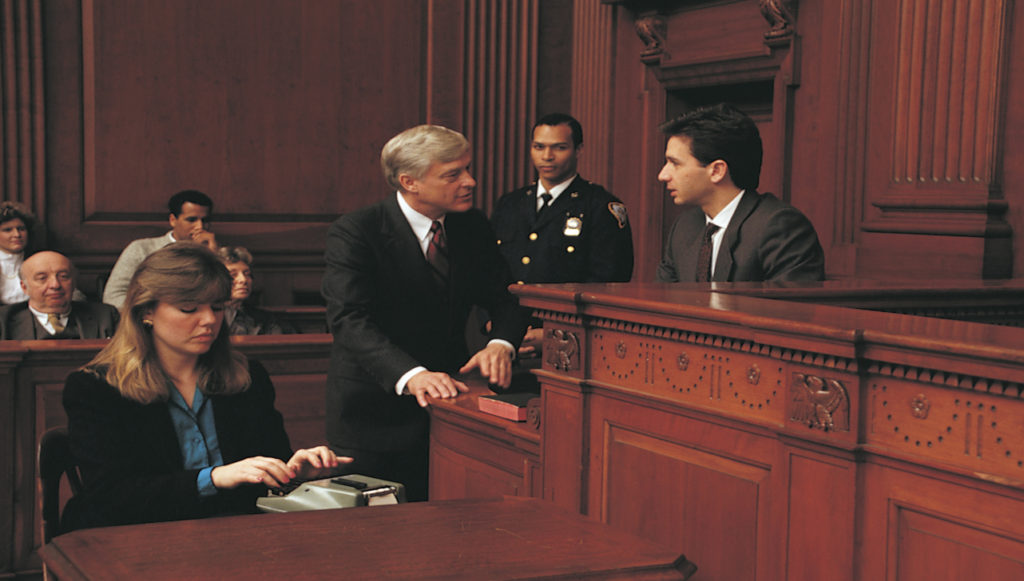What Does an Expert Witness Do?
Third-party reproduction, which includes surrogacy, egg donation, sperm donation, and donated eggs or embryos, can present complex legal and ethical challenges. In this article, we will explore the role of expert witnesses in third-party reproduction cases and the importance of their contributions.
An expert witness is a person who possesses specialized knowledge or expertise in a particular field and is called upon to provide testimony in a legal proceeding. In third-party reproduction cases, expert witnesses may come from various fields, such as reproductive medicine, psychology, social work, ethics, law, and representative/staff of agencies in surrogacy and egg/sperm donation. These experts provide objective and unbiased opinions based on their expertise, which can assist the court in understanding complex scientific, medical, and ethical issues related to third-party reproduction.
Key Roles of an Expert Witness
One of the key roles of an expert witness in third-party reproduction cases is to provide evidence and opinions related to the medical and scientific aspects of the case. For example, in cases involving egg donation or sperm donation, an expert witness with a background in reproductive medicine can provide insights on the medical procedures involved, the risks and benefits, how eggs, sperm, and embryos are frozen, and the potential health outcomes for the parties involved, including the intended parents, donors, and future child.
The expert witness may be asked to provide an opinion on matters that are beyond the understanding of the court or the jury, such as the ownership of frozen eggs or embryos, the cause of a miscarriage, the interpretation of medical records, or the best practices for screening a surrogate/egg donor. The expert witness may be asked to opine on the rights and responsibilities of the intended parent, surrogate, or the agency overseeing the case.
An expert witness with expertise in fertility and reproductive technology may be called upon to provide opinions on issues related to the use of assisted reproductive technologies (ART) in surrogacy, egg donation, or donated embryos, including the best practices for selecting and using ART, the risks and benefits of different ART procedures, and the success rates of ART procedures in surrogacy.
Expert witnesses can also provide opinions on third-party reproduction’s psychological and emotional aspects. For example, in cases involving surrogacy, an expert witness with expertise in psychology or social work can provide insights into the psychological suitability of a woman to be a surrogate or the interpretation of the psychological testing undertaken. These opinions can be key in cases where the psychological well-being of the parties involved is at stake, such as in disputes about whether a surrogate or donor was correctly evaluated by a mental health professional or agency.
Ethical Considerations
Ethical considerations are also significant in third-party reproduction cases, and expert witnesses can provide opinions on the ethical implications of various aspects of the case. An example is a situation where a couple has undergone in vitro fertilization (IVF) and has embryos frozen for future use, but then the couple separates or divorces. In such cases, the dispute often centers on whether one party has the right to use the embryos to try to have a child or whether both parties must consent to their use. A slightly different case is when a woman is diagnosed with cancer, and she and her husband decide to freeze embryos for use when she is cancer-free, but they separate before the embryos are implanted. He does not want to father a child with her, but she cannot ever create additional biological embryos. Is it ethical to deny a person the right to implant embryos if these disputed embryos are her only chance of having a biological child? Experts may opine about the legal paperwork the parties signed and the best interest of the parties and the future child, and this could assist the court in considering the ethical implications of the case and making informed decisions.
In addition to providing opinions and evidence, expert witnesses can also educate the court about the complexities of third-party reproduction that are beyond the understanding of the layperson or those without specialized knowledge in the field.
How Impartial Are Expert Witnesses?
Either party may retain the expert witness in a legal proceeding, and their testimony may be used to support or challenge the arguments of either side. The expert witness may be called upon to provide a written report or to testify in court, and they may be subject to cross-examination by opposing counsel.
It is important to note that expert witnesses are expected to be impartial and provide objective opinions based on their expertise, regardless of the party they are testifying for. They are not advocates for either side but are called upon to provide independent and unbiased opinions to assist the court in understanding the relevant issues.
Summary
In conclusion, expert witnesses play a crucial role in third-party reproduction cases by providing specialized knowledge and opinions on the case’s medical, psychological, ethical, and other relevant aspects. Their contributions can assist the court in making informed decisions that consider the complexities of third-party reproduction and ensure that the best interests of all parties involved, including the intended parents, donors, surrogates, and the future child, are considered. Expert witnesses bring valuable expertise to the legal process and help ensure justice is served in cases related to third-party reproduction.
Author: Jo Duffy, Infertility Portal, Inc.


